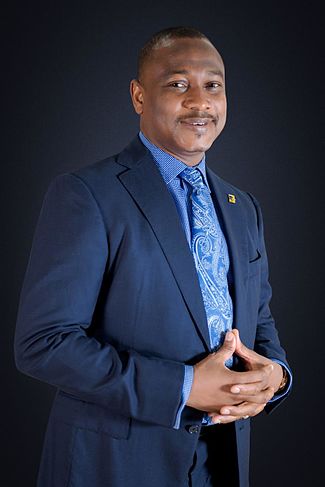By Hilda Mhagama
In the modern World, women need to support one another and face challenges as one. Women with influence and power have the ability to transform a generation, as do their male counterparts.
However, in most cases, this have been the opposite, few women stand to support others. Women across the world are still facing difficulties including sexual abuse and domestic harassment. Media have been reporting on the rape, murder, denial of education and physical attacks against women.
It is obvious that some women have managed to make some development steps and appear in the list of successful persons at different levels but the truth is that very few stands to support each other.
Women empowering each other can change the world and make great things to happen. It is quite clear that loving, caring and supporting each other create a strong foundation for great things to happen in future.
With such kind of spirit, there is no doubt that women can conquer the World. It is unfortunate that there is too much hatred, too much criticism and jealous among women, and this has been a setback to women struggles.
The situation set a bad example for young girls who need to learn from others and use them as their role models. Vice-President Ms Samia Suluhu Hassan said women should avoid conflict and rivalry, instead they must work together so that they can excel professionally and in social life. The Vice- President was opening the Second Tanzania Women Engineers Convention and Exhibition (TAWECE) in Dar es Salaam recently.
She said that women should always stand together and support each other in realising their dreams. “Engineering is regarded as special profession for men, but today we have women who are recording best performance in the same field, this means women can do it, thus lets support to each other,” she said.
The Vice- President expressed that some women have been acting strange against their fellow by pulling them back instead of supporting them to achieve their goals.
“I wish to see you networking, sharing opportunities and encouraging one another in reaching your desired goals,” she noted. Ms Samia met more than 300 women engineers. She said God created both women and men equally and that women must understand and play their role in the development of communities surrounding them and the nation at large.
On industrialisation, she said engineering and technology institutions should put in place environment that will attract and support girls to successful pursue engineering courses manage to compete in the job market.
“We are all aware that Tanzania is now focusing on industries, but we do not have enough skilled personnel. We need to fill that gap by encouraging more students, particularly girls, to train in engineering and other relevant fields to be able to achieve our goals,” she said.
Engineering Registration Board (ERB) Registrar, Engineer Steven Mlote, said among 17,122 registered engineers in the country 1,294 were women in which among them, 13 were consulting engineers.
Eng Mlote further said since 2010, the Norwegian government has been providing professional development support to women engineers in the country, noting that 3.4bn/- has been provided for over the next five years (2016-2021) to support professional development of 150 female engineers during their 3-year Structural Engineers Apprenticeship Programme (SEAP).
“It is high time for women engineers to be recognised and be given high posts because they can deliver” he noted. TAWECE Chairperson, Ms Alice Isibika, said during the first convention about 150 women engineers attended the meeting, but the number has increased to over 300 women engineers this year due to awareness. “Women engineers work hard and are willing to put in necessary extra efforts to achieve their goals, ” Ms Isibika said.
Marked under a theme, ‘Enhancing Women Engineers towards Social and Professional Development,’ the main objective of the gathering was to motivate women engineers to be able to explore their full potential in social and professional life using the Best Practice Approach.
TAWECE is the annual event funded by Norwegian government and organised by Women Engineers Chapter at the Institution of Engineers Tanzania (IET) and Engineers Registration Board (ERB).
Deputy Minister for Education, Science and Technology Engineer Stella Manyanya said the government has been implementing various initiatives to encourage girls to pursue Science, Technology, Engineering and Mathematics science (STEM) subjects to make sure there is sufficient number of women in such areas.
“For Tanzania to reach middle income economy, women must get ready to participate fully and make sure they use their skills to mark economic changes,” she said.
Eng Manyanya said the governed has also been providing professional development support and reviewing of policy to enable engineering companies to operate smoothly in the country.
Expounding further, she said laboratories and teaching aids remain a big challenge in rural areas and thus talented girls cannot be reached successfully. Over five years, the Norwegian government has provided 13.9 million Norwegian krones ($1.65 million) in funds to support trainee female engineers, mostly in the form of a monthly living allowance and training for mentors.
“This program aims to bring gender balance and empower women engineers to manage their responsibilities,” said Ms Monica Blaalid, a consultant at the Norwegian Embassy in Dar es Salaam. Ms Blaalid said the program had enrolled 291 women, of whom 143 have already been registered as professional engineers.
The trainees who have received Norwegian funding had a completion rate of 86 percent, compared to 20 percent for the candidates who had to pay their own way. She said the goal of SEAP is to empower women engineers to confidently hold and manage professional responsibilities in government, industry and business, as well as become competitive and able to contribute to the development of the country.
The first female engineers in Tanzania graduated in 1976, official statistics show that by 2009 only four per cent of all registered engineers in East African countries were women.



